#gongsun li
Text

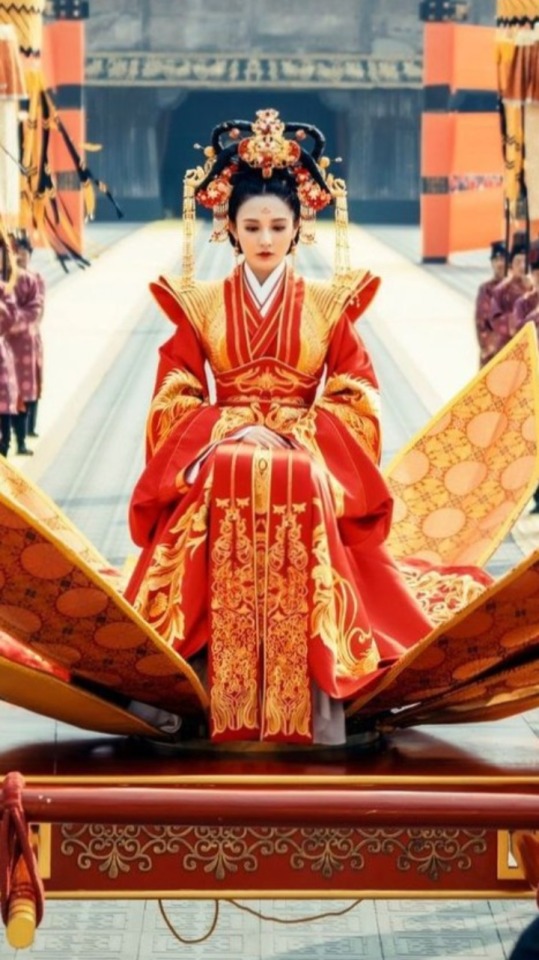

Period dramas dresses tournament: Red dresses FINALS!- Gongsun Li, The king's woman (gifset) vs Qu Xiaofeng, Goodbye my princess (pics set) vs Lucrezia Borgia, The Borgias (gifset)
#period drama dresses tournament#tournament poll#tumblr tournament#polls#fashion poll#gongsun li#the king's woman#qu xiaofeng#goodbye my princess#lucrezia borgia#the borgias#red finals#tournament finals
49 notes
·
View notes
Photo


♡ Gongsun Li (King of Glory) - Myethos
#gongsun li#king of glory#myethos#anime#anime figure#anime figurine#figure#figurine#bunny girl#1/10 scale
57 notes
·
View notes
Photo
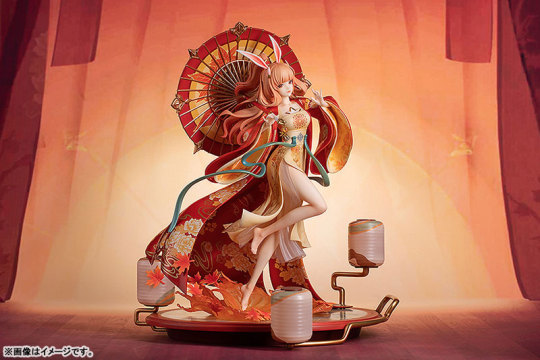

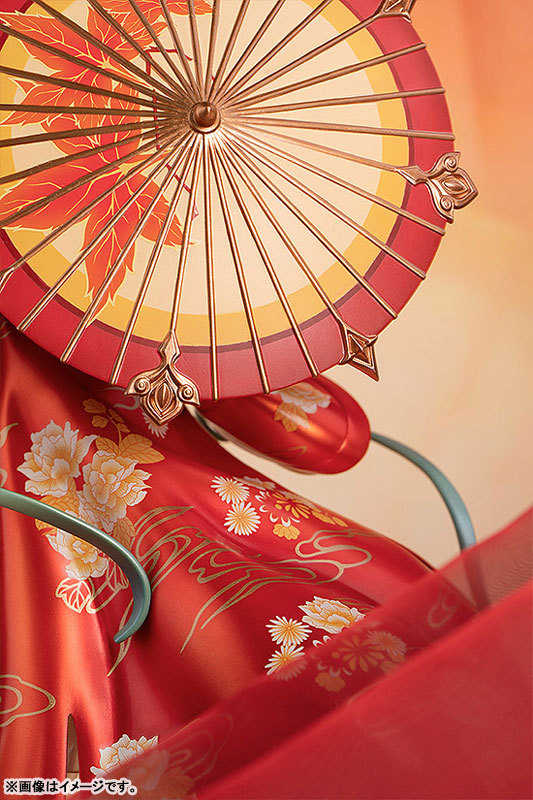
☆ Gongsun Li // Honor of Kings “Jing Hong Dance”
☆ 1/7 / Myethos
☆ February 2023 ¥19,800
20 notes
·
View notes
Text





Gongsun Li : Flower Dancer ver [Honor of Kings] 1/10 scale from Myethos coming August 2023.
#Gongsun Li#Flower Dancer#Honor of Kings#1/10 scale#Myethos#Gift+ series#King of Glory#Bunny Girls#Anime Figures
11 notes
·
View notes
Text
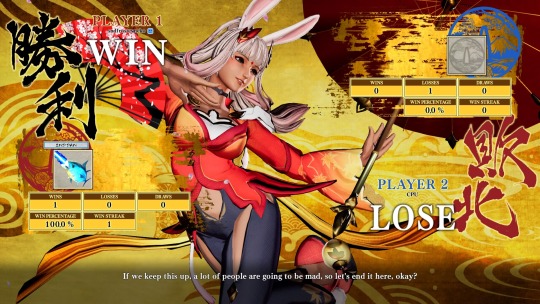
“If we keep this us, a lot of people are going to be mad, so let's end it here, okay?”
Gongsun Li, Samurai Shodown [2019] (SNK)
#gaming#samsho#samurai shodown#samsho2019#snk#snkp#samurai spirits#honor of kings#gongsun li#winquote#winning quote#game quote#quote#fighting game#fighting games#arcade fighter
28 notes
·
View notes
Text
Today, I started playing with gongsun li and got good results, I think I found my favorite shooter in honor of Kings.
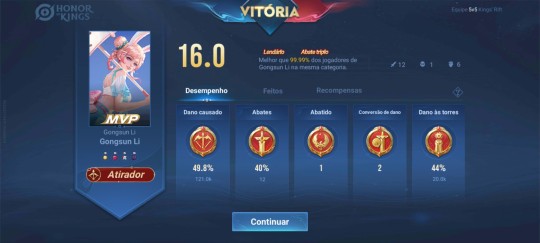
0 notes
Text

The real reason why Gongsun Qian was poisoned
15 notes
·
View notes
Text
I'm going to just assume that there's no major Shui Hu Zhuan rep in Iron Widow because they're all Fucking Gay, which is forbidden in mecha pilots because (spoilers)
it only takes one pair trying to switch up the seating for the super classified secret to get exposed.
Also, given that all 4 classics exist in book form, and with 2 of them also having their characters in the main story, it's not beyond imagination that the Liangshan crew exists, stole a mecha from some failed attempt to capture them, and had their strategists mod it to be gay-compatible.
Or heck, with a canonical mage they can just DIY.
#Iron Widow#Shui Hu Zhuan#Gongsun Sheng can be the golden child#solo piloting the 入云龙 (dragon in the clouds)#Zhang Heng Zhang Shun and Li Jun have the river dragon#The 3 Ruan brothers have.. Something. Maybe an otter#Song Jiang and Li Kui have some eldritch thing since both their nicknames are weather (rain and whirlwind)
2 notes
·
View notes
Note
Did Dong Zhuo do anything at all right after seizing power? Did the junta do anything at all right? Or were their regimes just the sheer idiotic sadism and chaos that they're often depicted as?
I recommend listening to @discourseofthethreekingdoms because we spend probably too much time talking about Dong Zhuo over there. He made some good moves but the bad far outweighed them.
Li Jue and the rest didn't take the titles of the Excellencies like Dong Zhuo did. Their positions were all military and they dictated all important affairs of state, but they kept the traditional hierarchy intact. Theoretically the government was back to the way it was supposed to be, if everyone ignored all the soldiers. They were also able to make a convincing argument in favor of killing Wang Yun, and they somewhat distanced themselves from Dong Zhuo. All of this made them somewhat more palatable to the various warlords.
The Li junta was completely unable to expand its direct sphere of influence but it had some success in other areas. Most of the major warlords sent tribute to the capital, tacitly accepting the junta's regime. In return, the traditional court authorized the titles they were already claiming for themselves, giving some degree of imperial legitimacy to their territorial claims. In other places they were able to use that authority to raise up rivals to their enemies (most successfully with Liu Yao in Yang) or pit factions against each other (as with Gongsun Zan and Liu Yu). They didn't have much leverage, but what they did have they utilized fairly effectively.
It's impossible to say how much of that is due to Jia Xu specifically, but SGZ indicates that he was the guiding hand behind much of their success while avoiding high titles and attention.
3 notes
·
View notes
Text
Samurai Showdown; GranBlue Fantasy Guest Character Poll



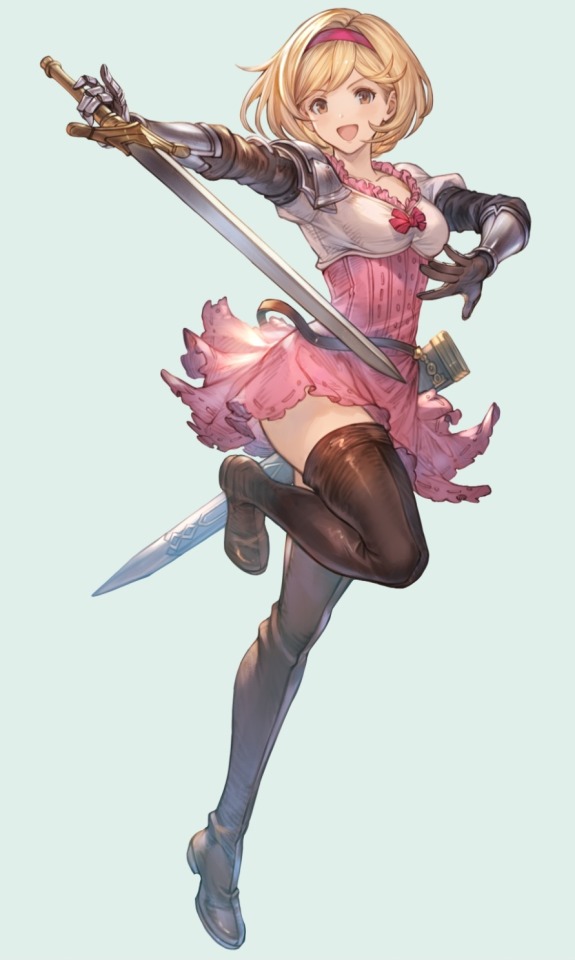

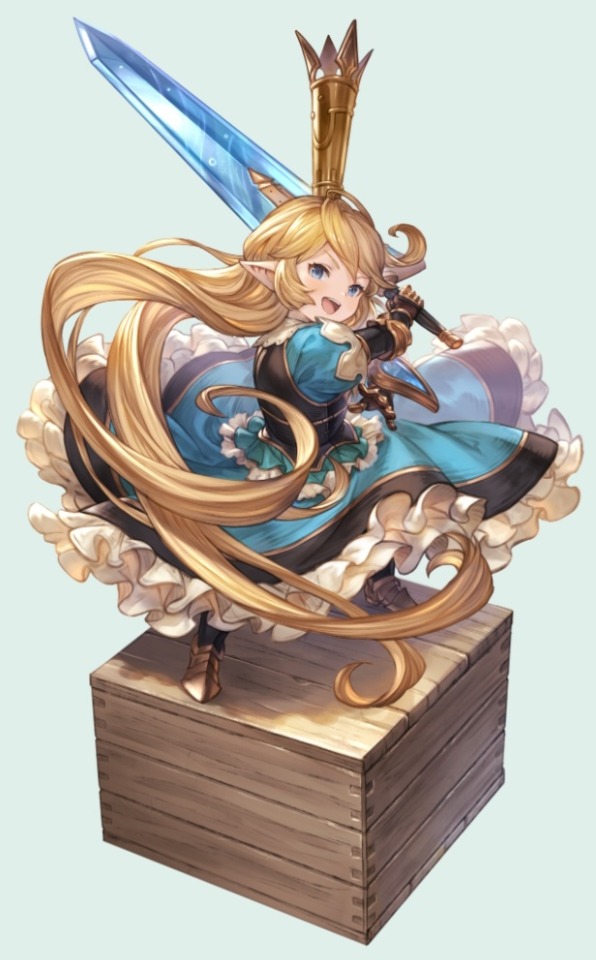


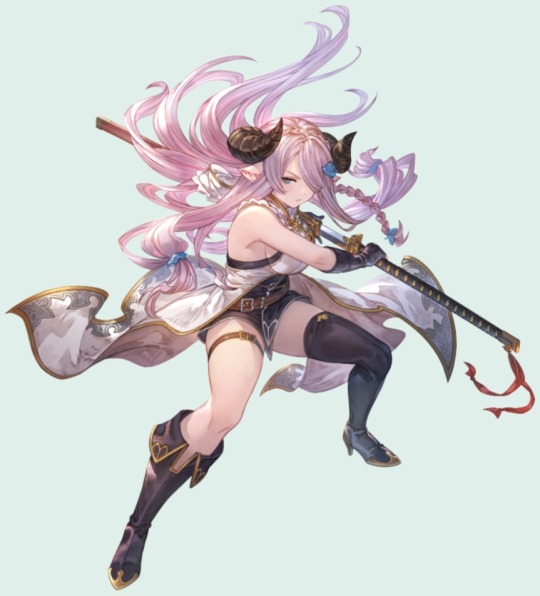
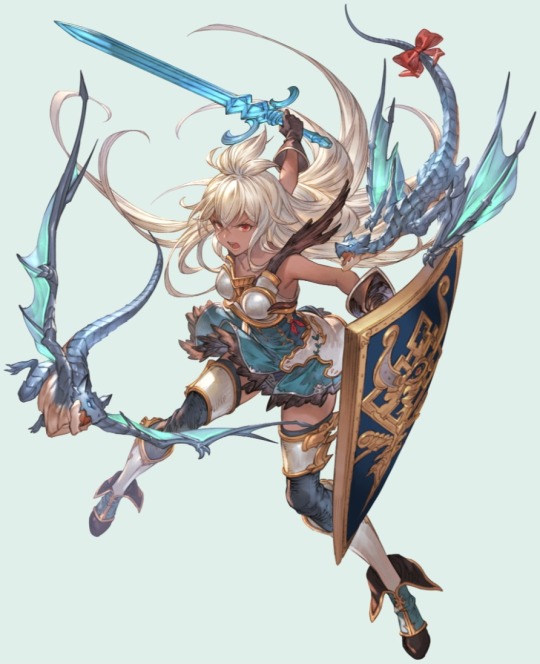


#Samurai Showdown (2019)#GranBlue Fantasy#Gran#Djeeta#Katalina Aryze#Charlotta Fenia#Lancelot (GranBlue Fantasy)#Percival (GranBlue Fantasy)#Narmaya#Zooey (GranBlue Fantasy)#Vira Lillie#Siegfried (GranBlue Fantasy)#Question Poll
2 notes
·
View notes
Text
~ tag game ~
tagged by @alltheyuletidecarolscantbelies~ thank you,,, !
three ships: lyra belacqua and will parry, michiru and haruka, gongsun li and ying zheng
first ever ship: usagi and mamoru, probably
last song: les loups by camille
last movie: it’s a wonderful life
currently reading: gideon the ninth by tamsyn muir
currently watching: wednesday (again)
currently consuming: coffee~
craving: something savory and filling- potato leek soup sounds nice tbh<3
tagging: @vampirkaninchen @ayzrules @zenibas @snaedis-kassandra @interluxetumbra @wrenling @celibacy-or-death & @medievalanchoress
15 notes
·
View notes
Text
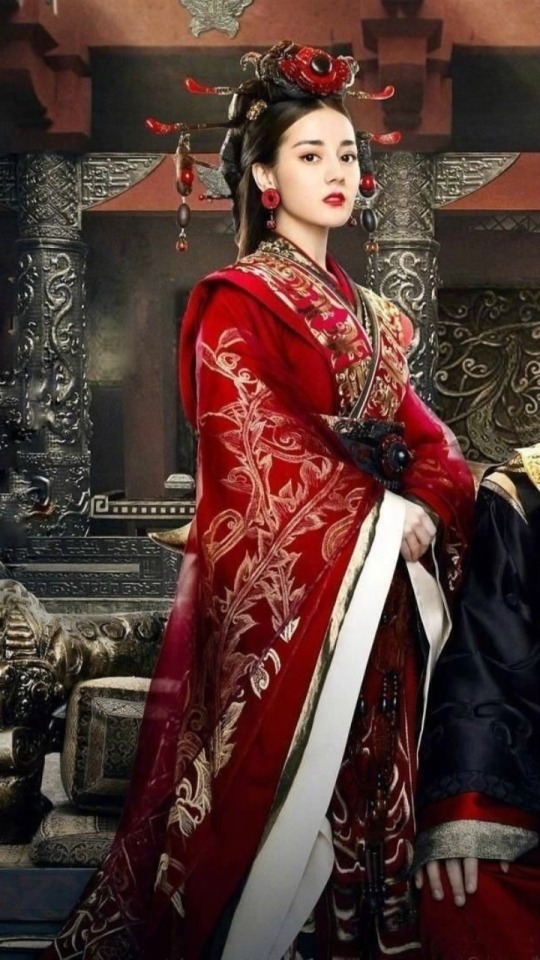

Period dramas dresses tournament: Red dresses Round 3- Group A: Gongsun Li, The king's woman (gifset) vs Elizabeth Tudor, Becoming Elizabeth (gifset)
#period drama dresses tournament#tournament poll#tumblr tournament#polls#fashion poll#gongsun li#the king's woman#elizabeth tudor#elizabeth i#becoming elizabeth#red r3
16 notes
·
View notes
Text
Qin Annexes the Six States, Part 1 (TTSJBM01)
[During the Warring States era, seven states, Qin, Wei, Han韓, Zhao, Chu, Qi, Yan, sat atop the power rankings, above a shrinking field of smaller states. Since, spoilers, Qin went on to dominate and then conquer the rest, the others are often collectively referred to as the Six States.
Here the rise of Qin to dominance is traced back to the ascension of Duke Xiao of Qin in 362 BC and his employment of a certain Wei Yang to reform the Qin legal code.
Qin's heartland in the Wei valley was protected by natural borders but was also somewhat isolated, and its people considered not quite civilized by their neighbors to the east. During the Spring and Autumn period Qin had had its heyday in the mid 7th century BC during the reign of Duke Mu of Qin. In the centuries after Qin suffered periodic bouts of internal instability, the last of these took place in 385 BC when the three year old boy-ruler Chuzi was killed and replaced by the future Duke Xian, the exiled son of a previous Duke and father of Duke Xiao.]
[ZZTJ002]
7th Year of King Xian of Zhou [362 BC], Duke Xian of Qin passed away, and his son Duke Xiao was installed. Duke Xiao was then twenty-one years old. At that time, eastward from the He and the Mountain there were six strong states, and between the Huai and the Si there were more than ten small states. Chu and Wei shared borders with Qin. Wei built long walls, and from Zheng adjoining the Luo and northward had Shang commandery. Chu from Hanzhong to the south had Ba and Qianzhong. Both, since the Yi and the Di got along with Qin, shunned and scorned them [Qin], and they did not mange to join the assemblies or alliances of the Central States. And so Duke Xiao let go of his frustrations, spread out his virtue and cultivated government, intending to strengthen Qin.
8th Year [361 BC], Duke Xiao sent down an order within the state which said:
In bygone times our Duke Mu [659 – 621 BC] from between Qi and Yong cultivated virtue and acted martially. To the east he pacified the chaos in Jin and used the He as the border. To the west he was hegemon over the Rong and Di, broadening the land a thousand li. The Son of Heaven made him Elder and the various feudal lords to the last sent their congratulations, making him founded a legacy for later generations extremely brilliant and fair.
It happened in the past, during the unquietness of Dukes Li [476 – 443 BC], Zao [442 – 429 BC],, and Jian [r. 414 – 400 BC], and Chuzi [r. 386 – 385 BC], that state and family had interior troubles and had no leisure for outside affairs. The Three Jin attacked and took our former lords' land of Hexi, humiliation is not greater than that.
When Duke Xian was installed [in 384 BC], he quelled and consoled the border regions, and moved the government seat to Yueyang. Moreover, he intended an eastern offensive, to restore Duke Mu's old lands, and cultivate Duke Mu's government and orders.
This Orphaned Person ponders and recalls the Former Lord's thoughts, and frequently feels a pain in the heart. Those guests, visitors, and crowd of subjects who are able to put forth marvellous plans to strengthen Qin, I will moreover venerate with office, and grant to them an allotment of land.
And so Gongsun Yang of Wei衛 heard that this order had been sent down, and then went west to enter Qin.
Gongsun Yang, a commoner-born grandson of the Wei衞 ruling family, was fond of the school of Punishments and Names. He served Wei's魏 Minister Gongshu Cuo. Cuo understood his worth, but had not put him forth for advancement. He happened to fall ill, and King Hui of Wei [r. 369 – 319 BC] went to question him, saying:
With Gongshu's illness, if there is what cannot be avoided, what should be done for the soil and grain?
Gongshu said:
Cuo's Central Retainer Wei Yang, though young in years, has marvellous talent. [I] wish my Lord would lift up the state and listen to him!
The King was silent. Gongshu said:
If my Lord will not listen to and employ Yang, [you] must kill him, and not have him set out from the borders!
The King promised to assent to it, and then left. Gongshu summoned Yang to apologize, saying:
I put first my lord and after his subject, and for that reason first made plans with my lord, and afterwards report it to you, Sir. Sir, you must act quickly!
Yang said:
[If] my lord was not able to employ Sir's, words to appoint a subject, then again why would he be able to employ Sir's words to kill a subject!
In the end he did not leave. The King went out, and spoke to his left and right, saying:
Gongshu's illness is severe, how sad! [He] wanted to make this Orphaned Person have the state listen to Wei Yang. And then also he urged this Orphaned Person to kill him. How is that not confused!
[The King thinks Gongshu Cuo has become so ill he is no longer capable of coherent thought, completely missing his argument that Wei Yang is so talented he must either serve Wei or die.]
Wei Yang then arrived in Qin, and owing to the favourite Jing Jian, sought an audience with Duke Xiao, to explain his techniques for enriching the state and strengthening the troops. The Duke was greatly pleased, and discussed state affairs with him.
10th Year [359 BC], Wei Yang wished to change the laws. The people of Qin were not pleased. Wei Yang talked to Duke Xiao of Qin, saying:
In all cases, the people cannot be contemplated with at the beginning, but they can be rejoiced with at the completion. Those who debate the highest virtue are not in harmony with the commonplace. Those who achieve great merit do not make plan with the multitudes. Thus, a sagely person, regardless of anything else, if it can strengthen the state, does not model himself on the old.
Gan Long said:
Not so. By adhering to the law and then govern, the functionaries will be familiar with it, and the people will be calmed by it.
Wei Yang said:
Ordinary people are calmed by old customs. Those who study are immersed in what they know about. To use this pair to fill offices and defend the law is possible, but not to debate with them what is outside the law. The wise make the laws, the foolish are regulated by them. The worthy alter the rites, the incompetent are restrained by them.
The Duke said:
Good.
He used Wei Yang as Chief of Retainers of the Left. In the end he decided on an order for changing the laws.
He ordered the people be grouped in tens and fives, to shepherd and oversee each other and be jointly incriminated with each other. Those who reported treachery were rewarded similarly to those who cut of an enemy's head. Those who did not report treachery were punished similarly to whose who surrendered to the enemy. Those who had merit with the army would each proportionately receive a higher feudal rank. Those who engaged in private quarrels would according to its seriousness receive greater or lesser punishment. Those who put their efforts into the fundamental professions, who ploughed and wove to produce grain and silk in great quantity, would have [their taxes] returned to themselves. Those whose affairs were non-essential profitmaking and those who were impoverished from idleness were put forward for custodial servitude. Those of the ducal house had no evaluation for merit in the army would not get to belong on its records. He clarified the feudal title and salary, rank and grade for the honoured and the low, each proportionally to their names' rank had fields and dwellings, subjects and concubines, clothing and dress. Those who had merit were visible and glorious, those who had no merit, even if wealthy, had nothing that was alluring or elegant.
When the order had been drawn up but not yet published, [Wei Yang] feared the mistrust of the people. He therefore erected a piece of wood three zhang long at the southern gate at the state's capital market, and recruited those among the people who were able to move and set it up at the northern gate with a reward of ten jin. People were curious about it, but none dared to move it. He then said:
Those who are able to move it will be given fifty jin!
There was a single person who moved it, and he immediately gave him fifty jin. Then he sent down the order.
[The point of this exercise was to prove to the people that Wei Yang would keep his word.]
When the order had been in force for a full year, those commoners of Qin who came to the state's capital to talk of the new order's disadvantages were in the thousands. And so the Heir-Apparent violated the law. Wei Yang said:
That the laws are not carried out comes from the sovereign violating them.
The Heir-Apparent, as his lord's successor, could not be punished with mutilation. So he mutilated his tutor, Gongzi Qian, and tattooed his teacher, Gongsun Jia.
That the laws are not carried out comes from the sovereign violating them.
The Heir-Apparent, as his lord's successor, could not be punished with mutilation. So he mutilated his tutor, Gongzi [“Noble Son”] Qian, and tattooed his preceptor, Gongsun [“Noble Grandson] Jia. The next day, the people of Qin all submitted to the order.
[Both of these people would have been part of the Qin ruling family.]
When they had carried it out for ten years, on the roads in the state of Qin nobody would pick up what had been misplaced, in the mountains there were no thieves or bandits, the people were brave in the Duke's battles and were fearful of private struggles, and the villages and towns were greatly put in order. The commoners of Qin who at the beginning had talked of order's disadvantages had now come to talk of its advantages. Wei Yang said:
These are all people who make chaos of the law.
He fully moved them to the border. After that people did not dare to discuss the order.
4 notes
·
View notes
Photo





☆ Gongsun Li // Honor of Kings “Flower Dancer ver.”
☆ Gift+ / 1/10 / Myethos
☆ August 2023 ¥5,280
34 notes
·
View notes
Text
Comprehensive Biography of Liu Dai
Liu Dai, styled Gongshan (劉岱字公山; bef. 156 - Spring 192), was a minor civil administrator, serving as Inspector of Yan Province. He was also Liu Yao's elder brother and an imperial kinsman. He died in battle against the Yellow Turbans.
Biography
Ancestry
His ancestors were from Mouping County, Donglai Commandery. Liu Dai's line was traced to Liu Jianglü, the Prince of Qi.[1] Liu Jianglü was the grandson of Emperor Gaozu of Han through his eldest son, Liu Fei.[2][3] Liu Jianglü's youngest son was enfeoffed as Marquis of Mouping, which is where his descendants, and thus Liu Dai, lived.[1][3]
Liu Dai's grandfather was Liu Pi; he had two sons in order of birth: Liu Chong (not the Prince of Chen) and Liu Fang. Liu Pi and Liu Chong will be described in Liu Chong's own biography.[3] Liu Pi also had a cousin named Liu Wei (劉韙), whose tale will be recounted in Liu Yao's biography.
Liu Fang (劉方), also known as Liu Yu (劉輿), would serve as Grand Administrator of Shanyang. Liu Fang had two sons: Liu Dai and Liu Yao. Liu Yao has his own biography.[1][5]
Life
Both Liu Dai and Liu Yao were recognized for their talent.[4][5] Liu Dai, in particular, was praised as being 'filial and fraternal, benevolent and forgiving, and humble when receiving others'.[5] The brothers were held in high esteem that a Taoqiu Hong nominated them to be Flourishing in Talents (maocais). The Inspector of a province, who most likely handled such nominations, complained,
"Last year, we nominated Gongshan. Whyfor should we also nominate Zhengli (Liu Yao)?"
Taoqiu Hong replied,
"If you would enlighten yourself, sir, to use Gongshan at the front and have Zhengli at the rear, this is akin to what is called '[having] two dragons on a long journey' and 'urging legendary steeds to run a thousand li'. Why not do this?"
It is heavily implied that Liu Yao was also nominated.[6] Liu Dai would later serve as Palace Attendant.[1]
Guandong Coalition
Around 190, he presumably became Inspector of Yan Province because Zhou Bi and Wu Qiong, whom Dong Zhuo held high opinions of, advocated for Liu Dai to be appointed to office.[7] However, he soon contributed his troops to the Guandong Coalition.[8] As Inspector of Yan Province, he was nominally in command over his subordinate Grand Administrators, Zhang Miao, Yuan Yi, and Qiao Mao, as well as Bao Xin. Around this time, he also met with Zang Hong, recommended by fellow coalition member Zhang Miao, and was impressed by him.[9]
In the second lunar month, Dong Zhuo moved the capital from Luoyang to Chang'an. Liu Dai stationed himself and his army at Suanzao alongside fellow members (and also his nominal subordinates) Zhang Miao, Yuan Yi, and Qiao Mao.[10] Qiao Mao, who controlled Dong Commandery, was nominally subordinate to Liu Dai. It is likely that Qiao Mao and Liu Dai's rivalry had its roots in that; this rivalry would blow up between Qiao Mao and Liu Dai, and eventually, Liu Dai killed Qiao Mao and appointed his subordinate, Wang Gong, to replace Qiao Mao.[11] Despite this violence, Liu Dai was one of five lords to remain in the Guandong Coalition against Dong Zhuo.[12]
Supporting Yuan Shao over Gongsun Zan
Yuan Shao and Gongsun Zan were locked in conflict with each other; both men were close with Liu Dai. Liu Dai was entrusted by Yuan Shao over his wife and children, while Gongsun Zan showed military support by reinforcing cavalry led by Fan Fang to him. Gongsun Zan soon demanded that Liu Dai send Yuan Shao's family with Liu Dai to him as well as sever ties to Yuan Shao. Liu Dai could not decide, even as Gongsun Zan defeated Yuan Shao's army. Soon, Gongsun Zan backed this up with a threat and told Fan Fang,
"If Dai does not send Shao's family [to me], lead your cavalry back. Once I defeat Shao, lead more troops against Dai."
Liu Dai, however, was still hesitant after several days. His subordinate, Wang Yu, told Dai that Cheng Yu, who had earlier declined to serve Liu Dai, would be able to decide who to side with. Cheng Yu told Liu Dai,
"If you abandon Shao, who is nearby with support, to ask for Zan's distant reinforcements, it is said to be using someone from Yue (south-east China) to save a drowning child [in the Central Plains]. Gongsun Zan is not Yuan Shao's equal. Now although he has defeated Shao's army, he will eventually end up captured by Shao. If you support tonight's power and not concern yourself with long-term plans, you, sir, will end up defeated."
Thus, Liu Dai remained loyal to Yuan Shao, and soon, Gongsun Zan was defeated by Yuan Shao. Liu Dai tried to thank Cheng Yu by petitioning he be made Commandant of Cavalry, but Cheng Yu declined and claimed illness.[13]
Defeats and Death
Around Late 191, over 100,000 Yellow Turbans invaded and seized Wei Commandery. They also defeated Wang Gong, who fled. Cao Cao was able to defeat them somewhat, enough for Yuan Shao to petition for him to become the new Grand Administrator of Dong Commandery.[14]
Around Spring 192, the aforementioned force of 100,000 Yellow Turbans began to encroach against Liu Dai. Liu Dai eventually decided to attack them, despite the protests of his advisor, Bao Xin. He engaged the Yellow Turbans and was killed in the fight. The ensuing vacancy had Liu Dai's former subordinates, among them Chen Gong and Bao Xin, invite Cao Cao to be the Governor of Yan Province.[15]''
Family
Liu Dai has no known children. He had a younger brother, Liu Yao, who has his own biography.
Legacy
The death of Liu Dai opened a pathway for Cao Cao to govern an entire province.
References
[1] - 【劉繇字正禮,東萊牟平人也。齊孝王少子封牟平侯,子孫家焉。繇伯父寵,為漢太尉。繇兄岱,字公山,歷位侍中,兗州刺史。】《三國志注•卷四九》
[2] - 【齊悼惠王劉肥者,高祖長庶男也。...後一歲,孝文帝以所封悼惠王子分齊為王,齊孝王將閭以悼惠王子楊虛侯為齊王。】《史記•齊悼惠王世家》
[3] - 【劉寵字祖榮,東萊牟平人,齊悼惠王之後也。悼惠王肥,高祖子也。悼惠王子孝王將閭,將閭少子封牟平矦,子孫家焉。父丕,博學,號為通儒。】《後漢書•卷七十六》
[4] - 【弟方,官至山陽太守。方有二子:岱字公山,繇字正禮。兄弟齊名稱。】《後漢書•卷七十六》
[5] - 【(《續漢書》曰:繇父輿,一名方,山陽太守。岱、繇皆有雋才。《英雄記》稱岱孝悌仁恕,以虛己受人。)】《三國志注•卷四九》
[6] - 【平原陶丘洪薦繇,欲令舉茂才。刺史曰:「前年舉公山,奈何復舉正禮乎?」洪曰:「若明使君用公山於前,擢正禮於後,所謂御二龍於長塗,騁騏驥於千里,不亦可乎!」】《三國志注•卷四九》
[7] - 【「初,卓信任尚書周毖、城門校尉伍瓊等,用其所舉韓馥、劉岱、孔伷、張咨、張邈等出宰州郡。】《三國志注•卷六》
[8] - 【兖州刺史劉岱…同時俱起兵,】《三國志注•卷一》
[9] - 【致之於劉兖州公山、孔豫州公緒,皆與洪親善。】《三國志注•卷七》
[10] - 【二月,卓聞兵起,乃徙天子都長安。卓留屯洛陽,遂焚宮室。是時紹屯河內,邈、岱、瑁、遺屯酸棗,術屯南陽,伷屯潁川,馥在鄴。】《三國志注•卷一》
[11] - 【劉岱與橋瑁相惡,岱殺瑁,以王肱領東郡太守。】《三國志注•卷一》
[12] - 【臣松之案:於時此盟止有劉岱等五人而已。】《三國志注•卷七》
[13] - 【初平中,兖州刺史劉岱辟昱,昱不應。是時岱與袁紹、公孫瓚和親,紹令妻子居岱所,瓚亦遣從事范方將騎助岱。後紹與瓚有隙。瓚擊破紹軍,乃遣使語岱,令遣紹妻子,使與紹絕。別勑范方:「若岱不遣紹家,將騎還。吾定紹,將加兵於岱。」岱議連日不決,別駕王彧白岱:「程昱有謀,能斷大事。」岱乃見昱,問計,昱曰:「若棄紹近援而求瓚遠助,此假人於越以救溺子之說也。夫公孫瓚,非袁紹之敵也。今雖壞紹軍,然終為紹所禽。夫趣一朝之權而不慮遠計,將軍終敗。」岱從之。范方將其騎歸,未至,瓚大為紹所破。岱表昱為騎都尉,昱辭以疾。】《三國志注•十四》
[14] - 【黑山賊于毒、白繞、眭固等十餘萬眾略魏郡、東郡,王肱不能禦,太祖引兵入東郡,擊白繞於濮陽,破之。袁紹因表太祖為東郡太守,治東武陽。】《三國志注•一》
[15] - 【青州黃巾衆百萬入兖州,殺任城相鄭遂,轉入東平。劉岱欲擊之,鮑信諫曰:「今賊衆百萬,百姓皆震恐,士卒無鬬志,不可敵也。觀賊衆羣輩相隨,軍無輜重,唯以鈔略為資,今不若畜士衆之力,先為固守。彼欲戰不得,攻又不能,其勢必離散,後選精銳,據其要害,擊之可破也。」岱不從,遂與戰,果為所殺。(《世語》曰:岱旣死,陳宮謂太祖曰:「州今無主,而王命斷絕,宮請說州中,明府尋往牧之,資之以收天下,此霸王之業也。」宮說別駕、治中曰:「今天下分裂而州無主;曹東郡,命世之才也,若迎以牧州,必寧生民。」鮑信等亦謂之然。)信乃與州吏萬潛等至東郡迎太祖領兖州牧。】《三國志注•卷一》
8 notes
·
View notes
Text
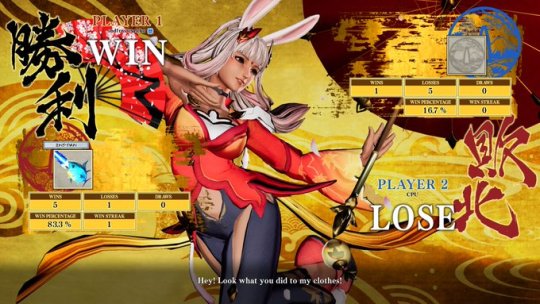
"Hey! Look what you did to my clothes!"
Gongsun Li, Samurai Shodown [2019] (SNK)
#Gongsun Li#honor of kings#gaming#samurai shodown#samurai spirits#samurai shodown 2019#snk#snkp#snk playmore#winquote#win quote#game quote#quote#2019#samsho 2019#fightan#samsho
31 notes
·
View notes